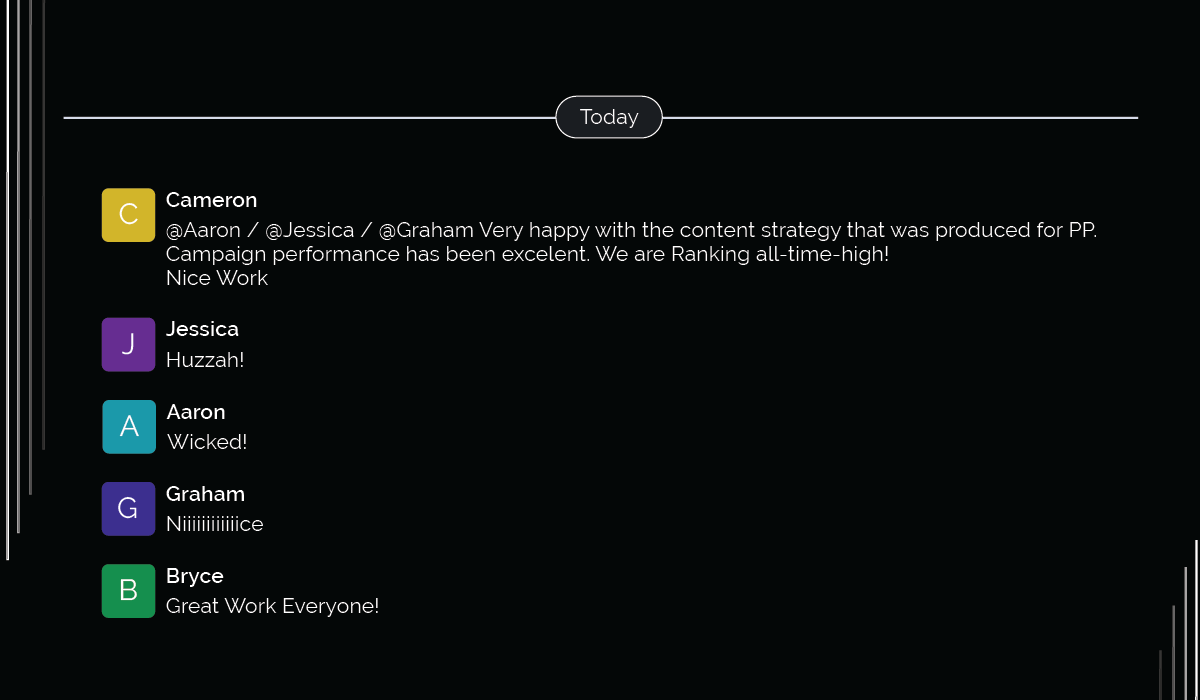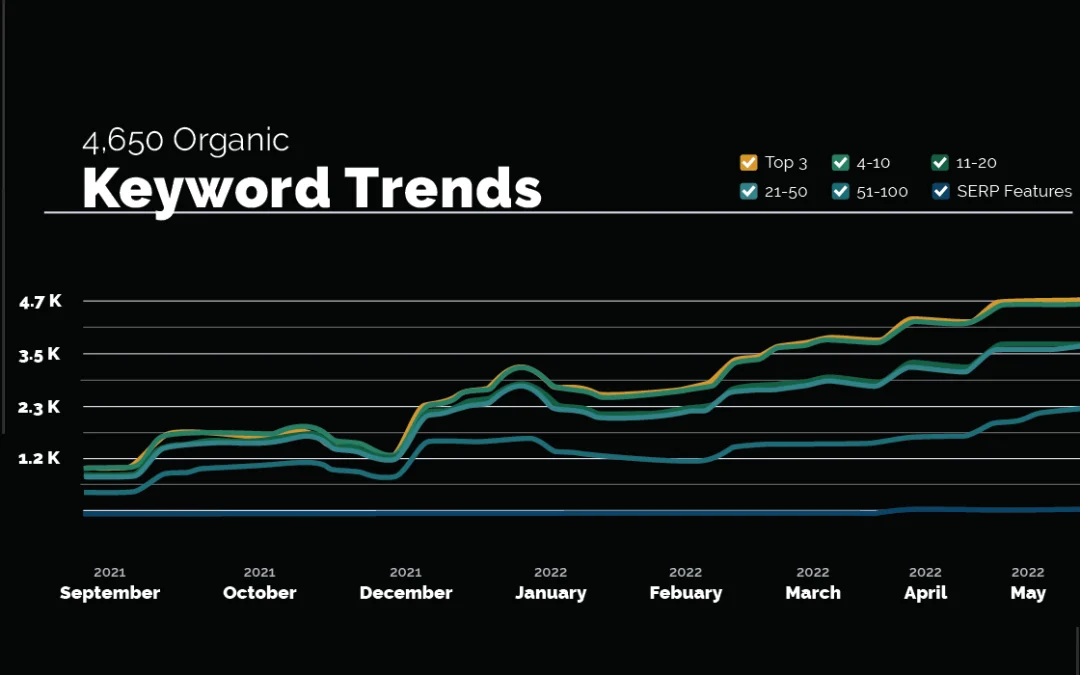Summary
- Successful marketing campaigns rely on maintaining team alignment and focus. Accountability ensures that your business goals go from aspirations to actual achievements.
- It’s crucial to establish clear, measurable goals for all marketing campaigns, and use key performance indicators (KPIs) to measure your team’s progress. Examples include conversion rates, site traffic, and bounce rates.
- Use tools like Google Analytics, SEMrush, and Hootsuite to gather the data your team will need to act on. Once you’ve collected this information, create a culture of open communication that makes it easy for everyone to stay in the loop.
- Equipping your team with the right tools and training helps ensure their success—while celebrating milestones and achievements helps maintain their focus and motivation.
- Address performance gaps or errors with timely and constructive feedback, and lead by example to model the approach you want your team to take. For expert help creating a marketing plan your team can follow to success, contact Monochrome Marketing and consult with us about the best approach for your business.
Successful marketing campaigns are as much about execution as they are about vision—which means you need to keep your marketing team accountable. Accountability bridges the gap between your ambitions and your end results. It’s how you make sure everyone can consistently deliver.
But creating a culture of accountability is a multi-step process—not only will you have to set the right goals and learn how to measure your team’s progress, but you’ll also need to learn how to communicate effectively, address issues along the way, and provide proper motivation by celebrating wins. Below, we share some of the strategies our team at Monochrome Marketing uses to carry out effective organic marketing and SEO campaigns by keeping our people on the same page.
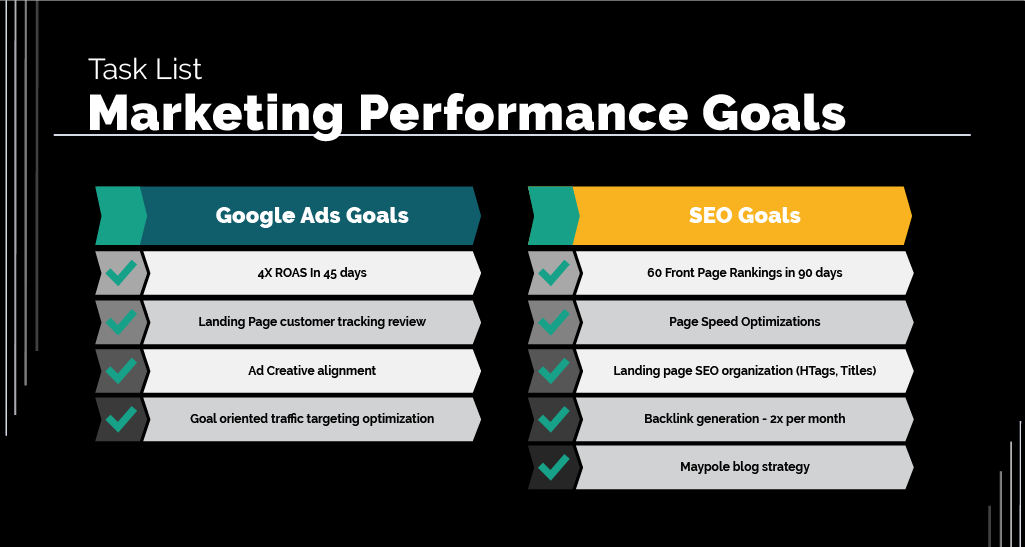
Set Clear Goals & Expectations
Setting clear, measurable goals for your marketing team helps keep their efforts unified and aligned. Without defined targets, efforts can easily become misdirected or diluted. Try the following to make sure everyone’s clear on what you’re trying to achieve:
- Create detailed project briefs outlining what each campaign should accomplish.
- Organize kick-off meetings for open discussion, and hold Q&A sessions so that everyone has a chance to get the information they need before starting.
- Provide regular feedback to maintain clarity for everyone as the project progresses.
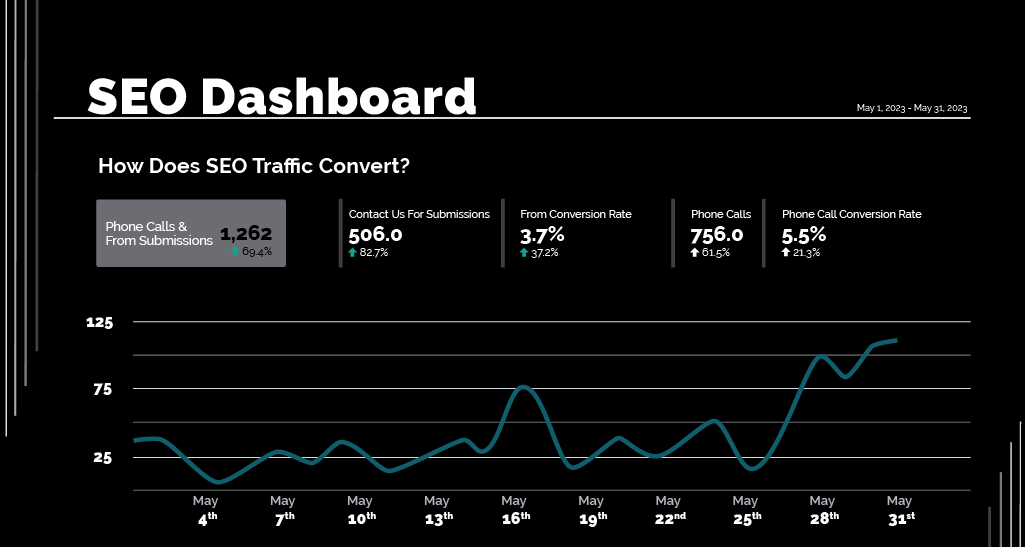
Establish Key Performance Indicators (KPIs)
Metrics and KPIs act as the pulse check of any campaign—showing you where your efforts are paying off and where you still need to refine your approach. Some of the most important KPIs to track during your digital marketing campaigns include:
- Conversion Rates: What percentage of your visitors are taking the action(s) you want them to take? This is usually the best indicator of a campaign’s effectiveness.
- Site Traffic: Your site’s overall number of visitors—a great barometer of brand awareness.
- Bounce Rate: The percentage of visitors who leave your site after viewing a single page—often an indicator that your UX needs work.
- Cost Per Acquisition: This is how much it costs for your campaign to attract a new lead or customer. It’s an important metric for gauging your campaign’s efficiency and helping you refine your approach.
For a more comprehensive list of KPIs and a full step-by-step guide on how to track them, check out our guide on How to Measure the Success of Your Digital Marketing Campaigns.
The SMART Approach to Choosing Goals & KPIs:
Marketing strategies should be SMART—Specific, Measurable, Achievable, and Relevant. Here’s how to use those principles when outlining your goals and the data you’ll use to measure your team’s progress towards them:
- Specific: Goals are more meaningful when they’re well-defined. Instead of “Increase website traffic”, try “Boost organic website traffic by 20%”.
- Measurable: If it can’t be measured, it can’t be managed. Use the tools listed in the next step to collect the data you’ll need to see if you’re hitting your targets.
- Achievable: Goals should be challenging yet attainable. Unrealistic targets can demotivate teams.
- Relevant: Make sure your KPIs align with your broader marketing strategy and business objectives. For example, increasing site traffic is a less effective KPI to focus on than your conversion rate if your overall goal is to make more sales, but it’s more effective if you’re trying to improve brand awareness.
- Time-bound: Deadlines keep your team in action. “By the start of Q2” or “over the next six months” sets a clear expectation and gets the ball rolling.
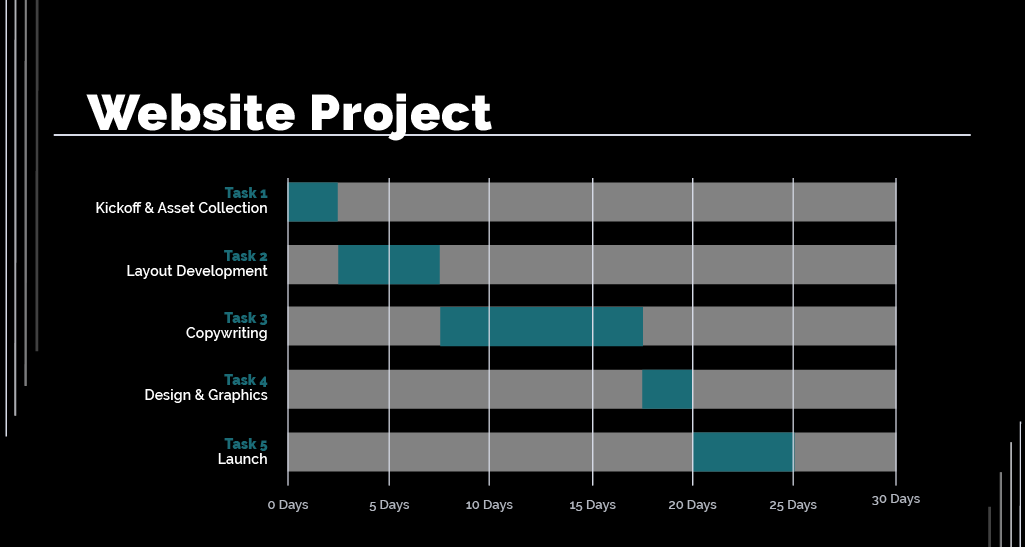
Regularly Monitor & Track Progress
Tracking isn’t about micromanagement—it’s about guidance. Consistently monitoring your marketing campaigns gives you the data you need to optimize your efforts and prevent team members from drifting off-target.
Key Tools for Monitoring Your Marketing Campaigns
- Google Analytics: Track conversion rates, site traffic, bounce rates, and more.
- Google Ads and Facebook Ads Manager: Gain data on your cost per acquisition and other key metrics for ad campaigns run through each platform.
- SEMrush: See how data for your keywords is changing over time so you can adjust them if necessary.
- Hootsuite: Manage your social media accounts from a single platform and get a comprehensive picture of how your posts are performing.
Reviewing your campaigns frequently is the key to keeping things on track. Try bi-monthly reviews, and make sure to offer support or revisit your strategy where needed when you find room for improvement.
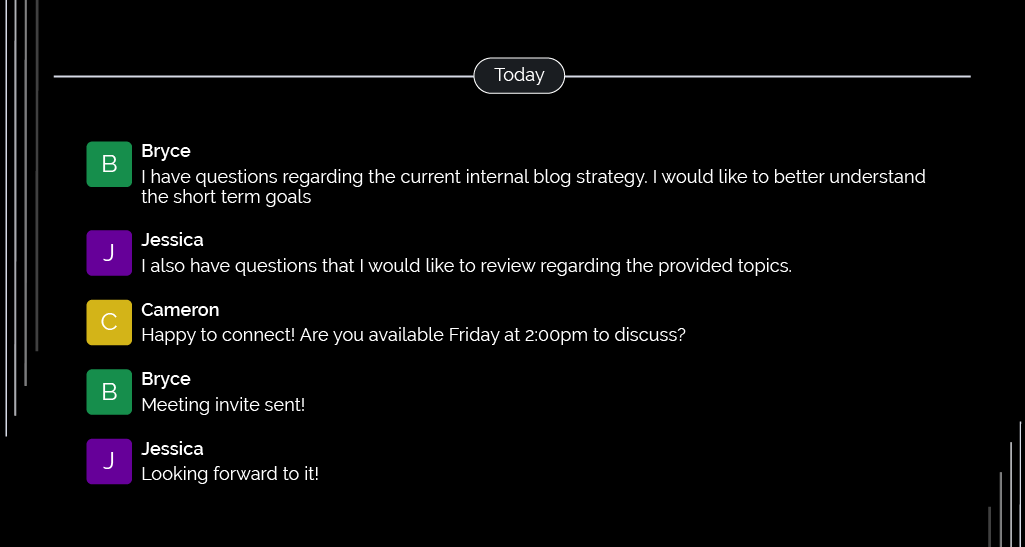
Foster Open Communication
Transparency builds trust, and trust is essential for high-performing teams. Use the following methods to create space for open dialogue to reduce misunderstandings and help your team feel confident about their work.
- Team Meetings: An opportunity to share company updates and ensure that everyone’s on the same page.
- One-on-Ones: A chance to provide specific feedback for individual team members—this is where you offer mentorship, plug knowledge gaps, and help shape their career trajectory.
- Feedback Sessions: Communication with your team is a two-way street! Holding dedicated space for others to provide ideas on how to improve the organization ensures that your people always feel seen and valued.
Provide Resources & Support
It’s hard to hold your team accountable if they’re not equipped for success—so you’ll need to make sure they have the right tools and training to meet your goals. Updating your tools on a regular basis and providing training when necessary makes it easier for your personnel to do their best work.
It’s also smart to seek out professional development opportunities for your team and encourage or incentivize their use. This motivates your employees to be proactive about developing skills that will help them grow in their careers while bringing additional value to the organization.
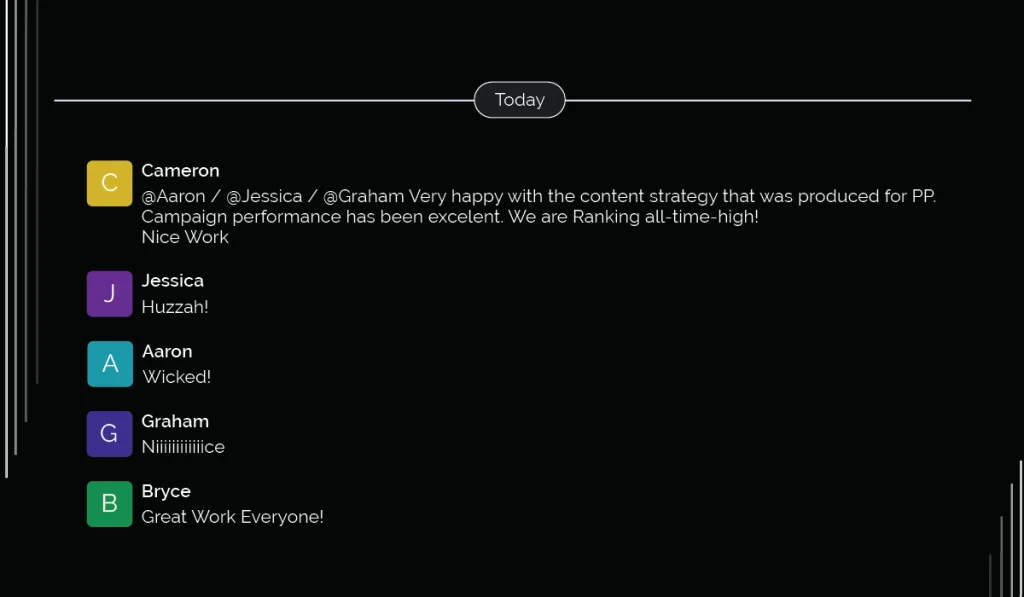
Celebrate Achievements & Recognize Efforts
Recognition shows that you value the effort your team puts in, improving their motivation. It’s important to recognize both individual and collective milestones, as this helps maintain a sense of unity among team members and keeps their efforts more cohesive.
Data collected by Gallup and Workhuman found that team members who receive regular recognition for their efforts are more active, more engaged with their workplace culture, less likely to leave the organization, and vastly more productive than those who don’t. Here are a few ways to try lifting up your team’s spirits:
- Openly acknowledge workplace wins and encourage your team members to celebrate each other’s accomplishments.
- Feature achievements in internal newsletters or on company bulletin boards.
- Organize team outings or lunches to celebrate significant project completions.
Address Performance Gaps & Challenges
It’s not always smooth sailing—but acknowledging obstacles or setbacks shouldn’t be punitive. In fact, addressing challenges in a timely and appropriate way creates opportunities for growth, and handling performance gaps proactively can prevent minor challenges from becoming major meltdowns. Remember: addressing concerns quickly shows your team that you’re actively invested in their success.
Tips for Offering Constructive Feedback
- Begin with the cause of the gap or challenge—why did the issue occur?
- Ensure feedback is specific, actionable, and coupled with support. You’re partnering with the member(s) of your team to help them solve a problem, not attacking their character or calling them out.
- Set periodic check-ins to review improvements and find out if the support you’ve offered is being implemented.
- Hold team-building activities that promote important communication and problem solving skills while helping team members have fun and bond more effectively.

Lead by Example
Finally, it’s important to understand that authentic leadership resonates. When you hold yourself accountable, it sets the tone for your entire marketing team. The more consistently you display dedication, transparency, and accountability, the more you can expect to see those qualities around you as well.
By following the steps above, you’ll create a space of mutual respect, clear direction, and meaningful support for your marketing team. This sets them up for success and ultimately helps your organization thrive. For professional support refining your marketing efforts, contact the Monochrome team. We can work with you to create a personalized plan for growth that accounts for your specific business goals, tracks appropriate KPIs to gauge your effectiveness, and keeps your efforts focused to ensure success.

